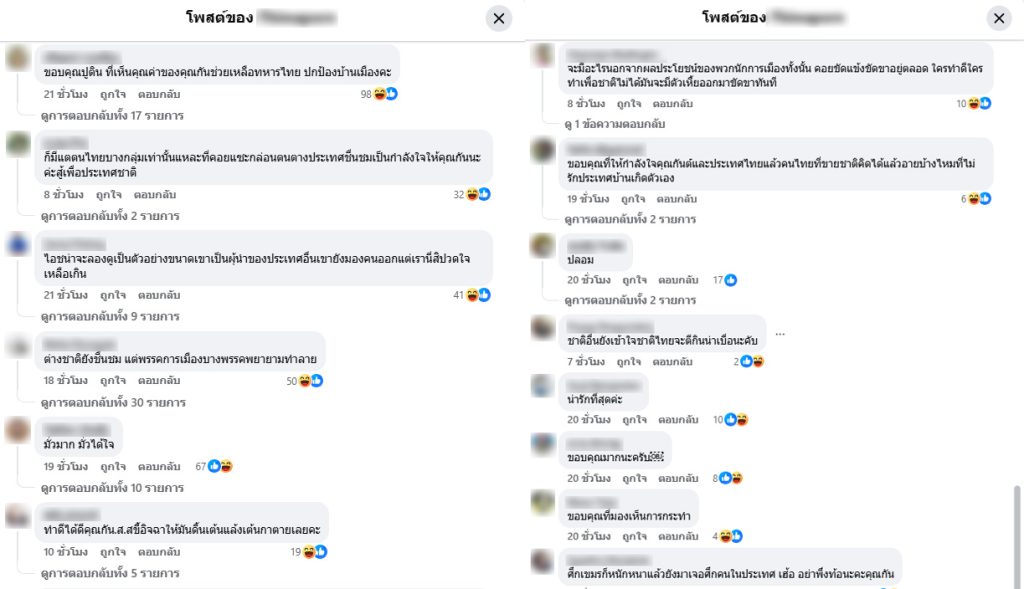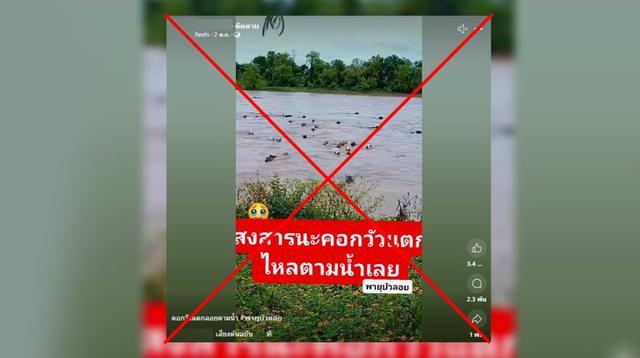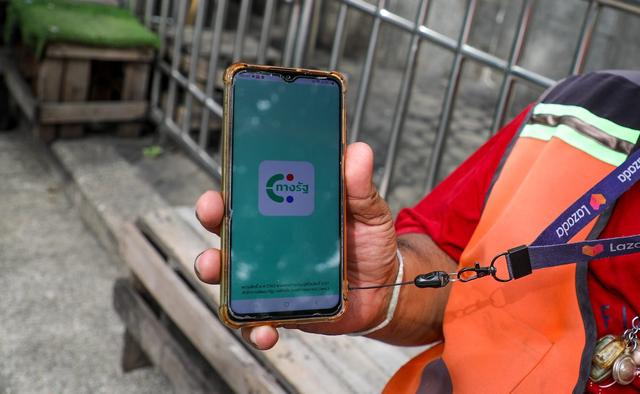Source verified by Thai PBS Verify: Facebook

A screenshot image shows a post claiming “Putin” praised “Kan Jompalang” as a model citizen who loves his country and homeland.
A screenshot of the post shows a Facebook user named “Thimaporn Tongnok” who shared an image and caption saying:
“#LATEST!!!!!! Putin has issued a statement via BBC praising Mr. Kan as a model of patriotism and love for the homeland — a Thai hero who defends the nation’s territory and encourages all Thai people.”
The image included Russian President Vladimir Putin and “Kan Jompalang” (Kanthas Phongphaiboonwetch), a well-known Thai influencer. The post received 17,000 reactions and was shared over 1,100 times.
Image from Other News Altered
Thai PBS Verify examined the image in the viral post using Google Lens and found that the photo of Vladimir Putin used in the post had been edited — the original blue background was changed to yellow. When the original image was searched again, it appeared on AFP Forum, AFP’s digital photo archive. According to AFP, the photo shows Russian President Vladimir Putin visiting Moscow State University (MSU) on January 24, 2025, where he presented the “Order of Labor Valor” to university faculty and chaired a meeting of the university’s board of trustees. There was no mention whatsoever of “Kan Jompalang” in that event.
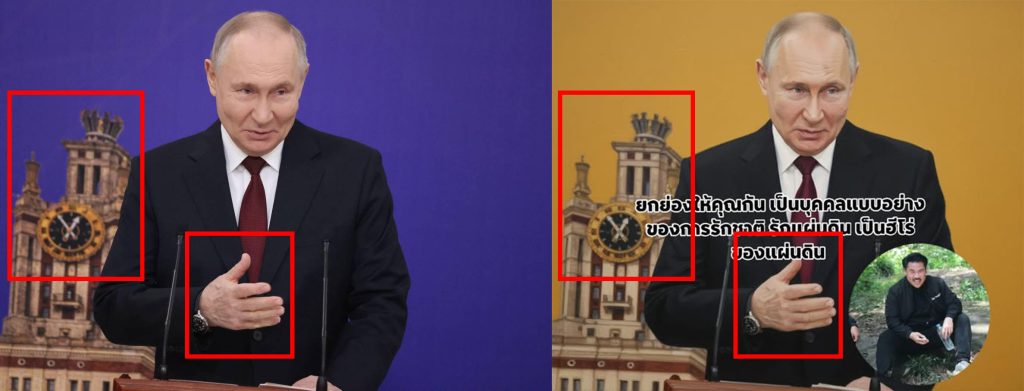
Image Comparison: Left: Authentic AFP Forum photo of President Putin visiting Moscow State University on January 24, 2025. Right: The doctored image used in the false post claiming “Putin praised Kan Jompalang as a patriotic role model.”
As for the photo of Kan Jompalang, it was taken from the Facebook page “Kan Jompalang Chuai Su” (Kan Jompalang Helps Fight), originally posted on October 9, 2025.
That post expressed his personal feelings after receiving public criticism during his field visit to the Thai Cambodian border area.
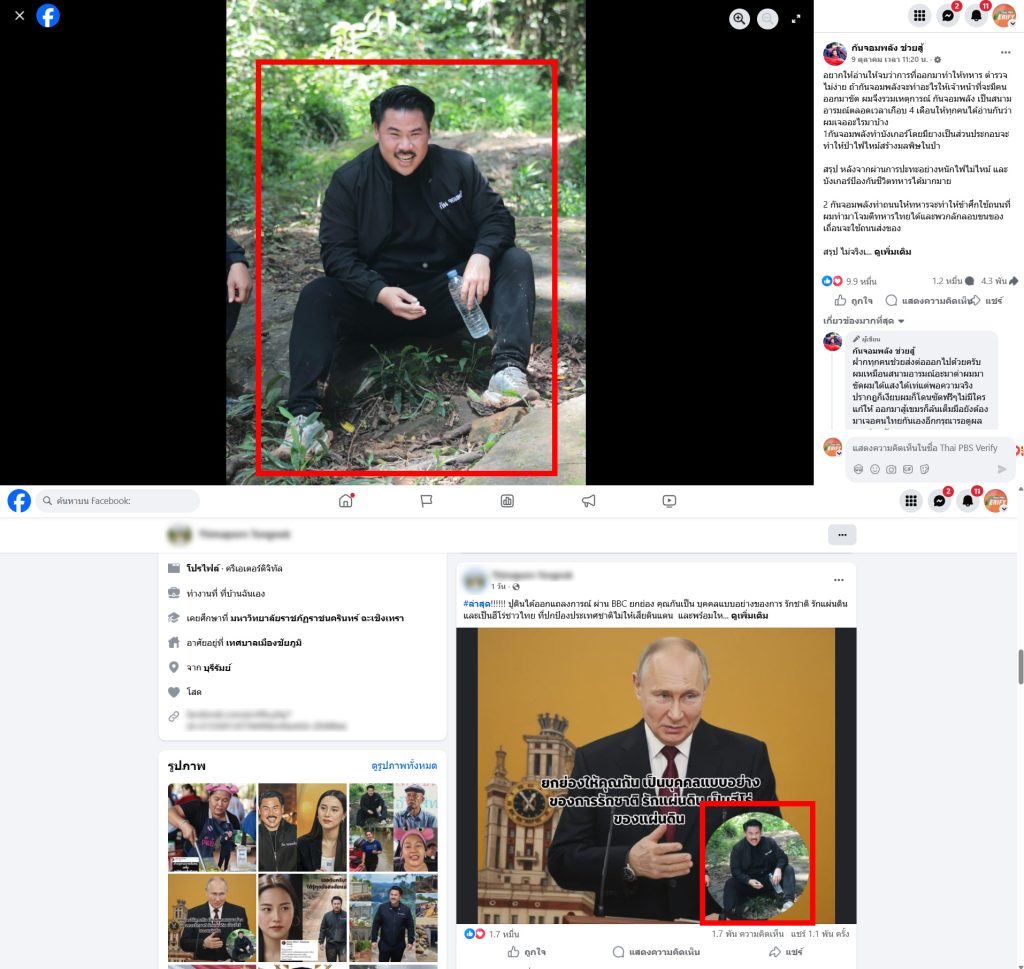
The image from Kan Jompalang’s Facebook post on October 9, 2025 (top) was compared with the image from the fake post (bottom).
Use fabricated references
Thai PBS Verify found that the fake post used fabricated references that do not exist.
Specifically, the claim that BBC reported on President Vladimir Putin praising Kan Jompalang as a patriotic role model was false. A search through BBC’s news tags related to Vladimir Putin revealed no such article or statement, either in the past month or earlier.
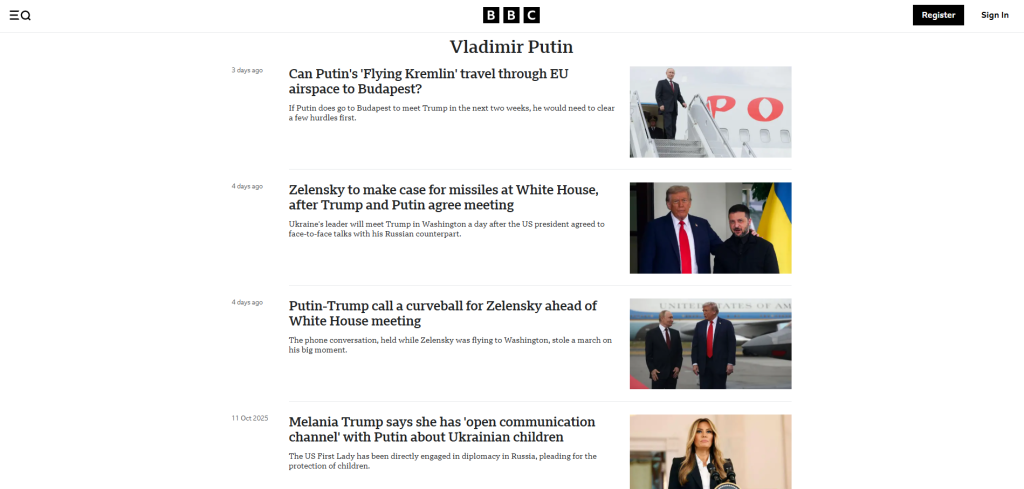
The screenshot image shows BBC’s tag search results for “Vladimir Putin,” confirming that no stories mention Kan Jompalang in any BBC report.
Scam Link Charging Monthly Fees
Further investigation into the Facebook post’s comment section, the poster invited users to join as a member, writing:
“#Thank you for being part of this. Please join as a member, be part of the profile.”
They also attached a link, which, when clicked, led to a Facebook subscription confirmation page that charges 35 baht per month.
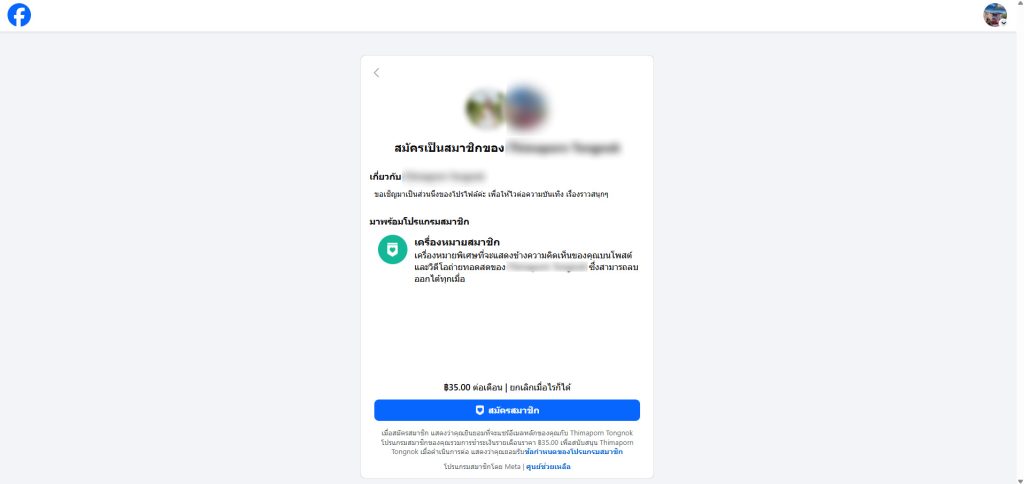
A screenshot image shows the subscription page that appears after clicking the link, confirming that it is a paid monthly membership link.
The Facebook account that posted the fake news appears to be an ordinary user. Most of their posts consist of news about Thai Cambodian border issues and AI-generated images created as online content.
Be Careful to Discern Before Believing
Asst. Prof. Dr. Jetsada Salathong, lecturer at the Faculty of Communication Arts, Chulalongkorn University, commented on the viral post, saying that
“If we look at the context, we must ask — is it even possible that Putin would know Kan Jompalang? And for what reason would he communicate about Kan Jompalang? What motivation would Putin have to mention him? When considering motives and circumstances, it seems nearly impossible that Putin would know Kan Jompalang. He further emphasized that the issue should be viewed beyond simple fact-checking. Even though it has already been confirmed that the information is false — both in terms of factual accuracy and contextual logic — it’s important to also ask who benefits from such misinformation. He suggested analyzing it on two levels. Firstly, who posted it? Was the poster a real person? What were their intentions in spreading this post? Secondly, who gains or losses when it is shared? On one hand, it might be genuine fans of Kan Jompalang seeking to boost his popularity by showing that even a world leader recognizes him. On the other hand, it could be an opposing group attempting to set a trap — creating fake praise to lure fans into sharing and then discrediting them by claiming they lack media literacy and critical thinking skills. This could be a strategy to undermine the credibility or influence of Kan Jompalang’s supporters.

Asst. Prof. Dr. Jetsada Salathong, Faculty of Communication Arts, Chulalongkorn University
Dr. Jetsada concluded that when we encounter any piece of information online, it’s not enough to just check whether it’s true or false. We should also consider the motives behind it — who stands to gain or lose when the information is shared. If we think carefully, we can make more thoughtful decisions whether to share something or not.”
However, if using verification as checklist and analyzing who makes this information, the first step in any verification process is to decide not to share false information. If, in the very first step, we find that the information is not true, then sharing it is definitely wrong — regardless of who benefits or who loses.
Dr. Jetsada also pointed out a worrying trend among some people who share information even when they know it’s false. These individuals may have personal motives, ideological interests, or confirmation bias — a psychological tendency to believe and spread information that aligns with their existing beliefs, even when they doubt its accuracy. This is like closing one eye — which is a dangerous behavior that leads people to become trapped in an Echo Chamber, where they are surrounded only by opinions and information that reinforce their own worldview.
What’s the Truth?
The post claiming that “Putin praised Kan Jompalang through BBC” is fake news. It uses edited images, fabricated text, and false references (such as BBC) to mislead people — its real purpose is to trick users into subscribing and paying monthly fees.

